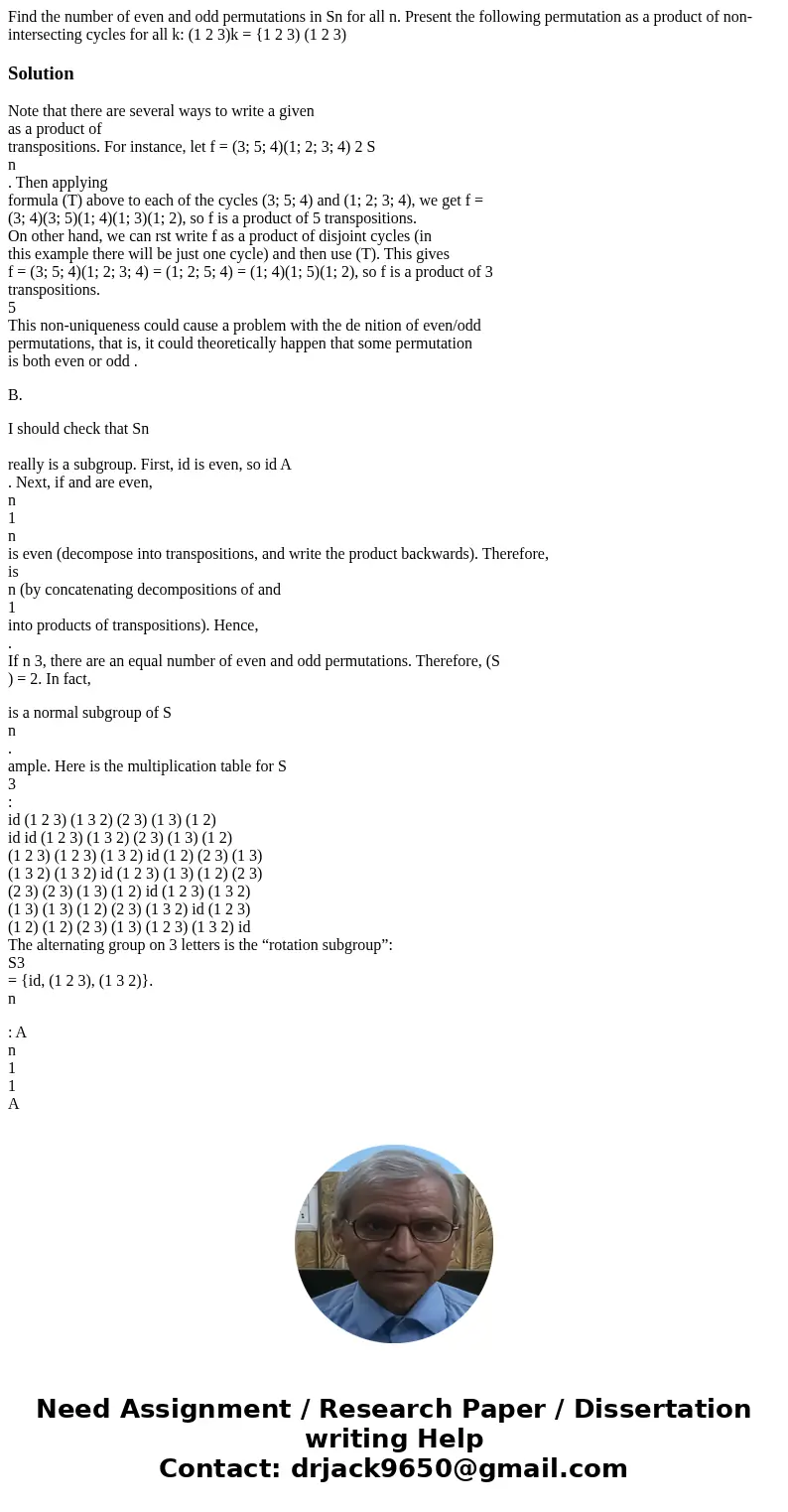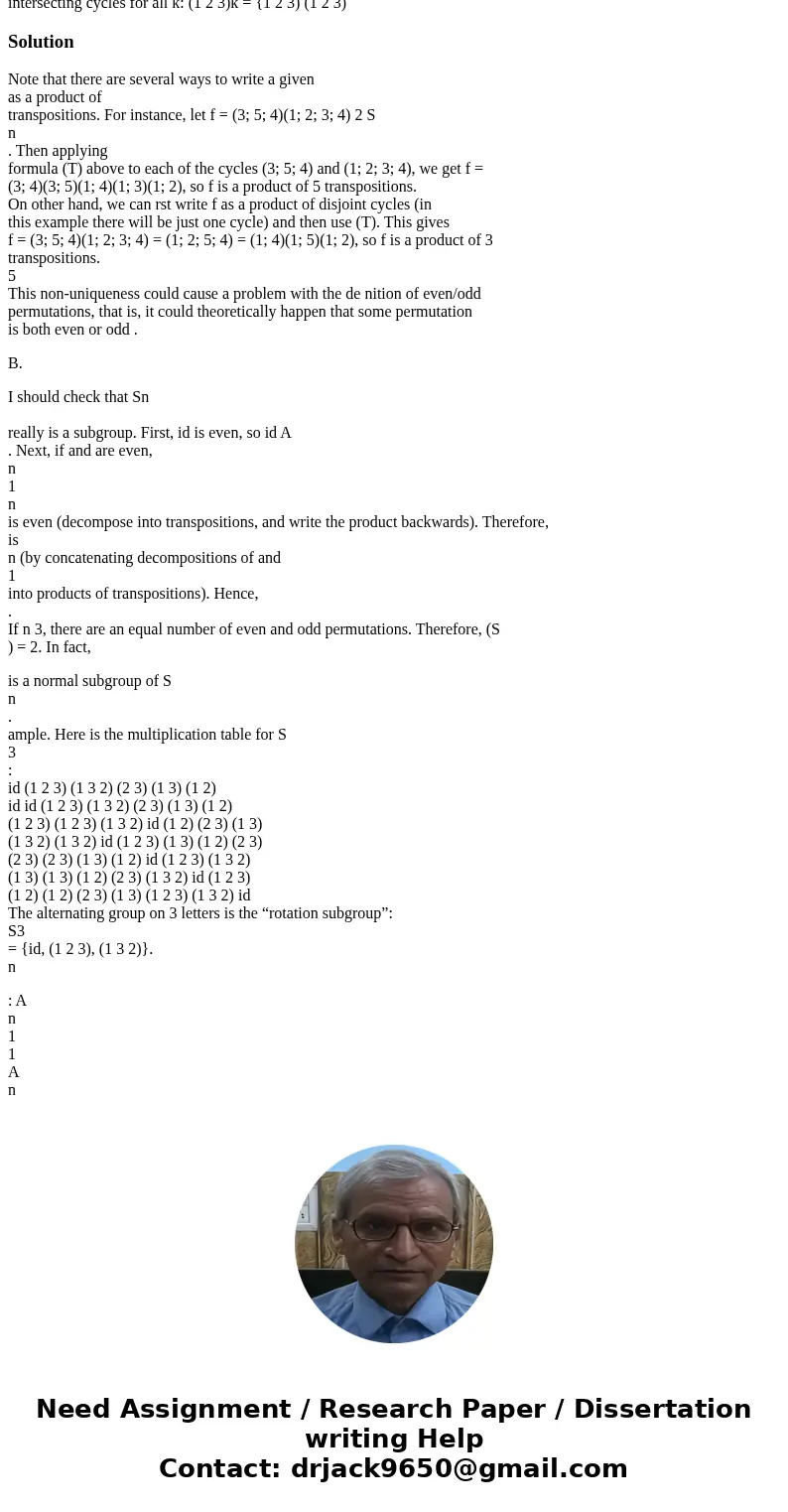Find the number of even and odd permutations in Sn for all n
Solution
Note that there are several ways to write a given
as a product of
transpositions. For instance, let f = (3; 5; 4)(1; 2; 3; 4) 2 S
n
. Then applying
formula (T) above to each of the cycles (3; 5; 4) and (1; 2; 3; 4), we get f =
(3; 4)(3; 5)(1; 4)(1; 3)(1; 2), so f is a product of 5 transpositions.
On other hand, we can rst write f as a product of disjoint cycles (in
this example there will be just one cycle) and then use (T). This gives
f = (3; 5; 4)(1; 2; 3; 4) = (1; 2; 5; 4) = (1; 4)(1; 5)(1; 2), so f is a product of 3
transpositions.
5
This non-uniqueness could cause a problem with the de nition of even/odd
permutations, that is, it could theoretically happen that some permutation
is both even or odd .
B.
I should check that Sn
really is a subgroup. First, id is even, so id A
. Next, if and are even,
n
1
n
is even (decompose into transpositions, and write the product backwards). Therefore,
is
n (by concatenating decompositions of and
1
into products of transpositions). Hence,
.
If n 3, there are an equal number of even and odd permutations. Therefore, (S
) = 2. In fact,
is a normal subgroup of S
n
.
ample. Here is the multiplication table for S
3
:
id (1 2 3) (1 3 2) (2 3) (1 3) (1 2)
id id (1 2 3) (1 3 2) (2 3) (1 3) (1 2)
(1 2 3) (1 2 3) (1 3 2) id (1 2) (2 3) (1 3)
(1 3 2) (1 3 2) id (1 2 3) (1 3) (1 2) (2 3)
(2 3) (2 3) (1 3) (1 2) id (1 2 3) (1 3 2)
(1 3) (1 3) (1 2) (2 3) (1 3 2) id (1 2 3)
(1 2) (1 2) (2 3) (1 3) (1 2 3) (1 3 2) id
The alternating group on 3 letters is the “rotation subgroup”:
S3
= {id, (1 2 3), (1 3 2)}.
n
: A
n
1
1
A
n


 Homework Sourse
Homework Sourse